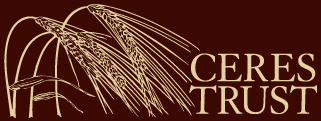Unraveling the mystery of compost teas used for organic disease and insect pest management
Principal Investigator
Annemiek Schilder, Associate Professor, Small Fruit Pathology, Dept. Plant Pathology; 105 Center for Integrated Plant Systems, Michigan State Univ., East Lansing, MI 48824. Tel. 517-355- 0483; Fax: 517-353-5598; Email: [email protected]
Co-Investigators
- Matthew Grieshop, Assistant Professor, Organic Pest Management, Department of Entomology, 205 Center for Integrated Plant Systems, Michigan State Univ., East Lansing, MI 48824. Tel. 517- 432-8034; Fax: 517-353-5598; Email: [email protected]
- John Biernbaum, Professor, Floriculture/Organic and Sustainable Agric., Department of Horticulture, A440c Plant & Soil Sci. Bldg., Michigan State Univ., East Lansing, MI 48824. Tel. 517-355-5191 x1419; Fax: 517-355-0249; Email: [email protected]
- Eric Hanson, Professor and Extension Specialist, Department of Horticulture, A338 Plant & Soil Sci. Bldg., Michigan State Univ., East Lansing, MI 48824. Tel. 517-355-5191 x1386; Fax: 517-353- 0890, Email: [email protected]
- Laura Avila Miles, MS Student, Department of Plant, Soil and Microbial Sciences
- Brooke Comer, PhD Student, Department of Horticulture
- Donald Comer, Research Assistant, Department of Plant, Soil and Microbial Sciences
- Gayathri Kotamraju, MS Student, Department of Plant, Soil and Microbial Sciences
Introduction and justification
Watery fermented extracts (teas) of compost are commonly applied to plants and soil to increase plant or soil health, provide nutrients and to protect plants from diseases or herbivorous insects. Compost tea is a microbe- and nutrient-rich tool for organic crop production that can be easily prepared by a grower on-farm from locally available materials. Using local composts and ingredients would reduce production costs as well as the carbon footprint of organic farming. Since pest management is more challenging in organic agriculture due to limited control options, compost teas may have utility, particularly as a maintenance measure to prevent diseases from ever taking hold. However, high variability in disease control is observed with different substrates and brewing methods and control may not be commercially acceptable. There is conflicting information on which ingredients and methods are most suitable to obtain compost teas with disease suppressive properties. While there are many purported claims of the benefits of compost teas, few science-based recommendations are available for organic growers who prepare their own compost teas. Therefore this proposal aims to aid organic growers by determining characteristics of compost teas that make them more useful and reliable for disease and insect pest management. The specific objectives of the project were to:
- Develop bioassays for evaluating disease and insect pest suppression by compost teas,
- Evaluate grower-produced compost teas to examine variability between batches and/or recipes,
- Evaluate the effects of substrate, brewing method and time, addition of biocontrol agents and adjuvants on disease and insect suppressiveness,
- Examine the mechanism(s) of disease and insect suppression.
The research reported in this grant was conducted from 2011-2016. While the Ceres Trust grant officially ended in 2014, we continued our work with funding from the Michigan State Horticultural Society to answer the original questions in this grant proposal. In light of the limitations of greenhouse bioassays, we decided that field trials were needed to more definitively answer the original questions in this grant proposal.
